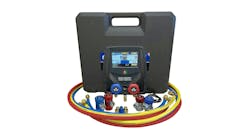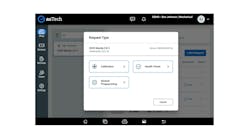Ask the Expert: How can I estimate the environmental benefit from using re-refined engine oil?
Q: How can I estimate the environmental benefit from using re-refined engine oil?
A: A greener engine oil means far less greenhouse gases. In fact, a fleet that uses 250,000 gallons of EcoPower re-refined engine oil can reduce greenhouse gas emissions by more than 1,900 metric tons. That's equal to the carbon absorbed by growing over 49,000 trees for 10 years in an urban environment. Some of the largest fleets in North America, including the U.S. Military, use re-refined engine oil.
What kind of environmental impact can your fleet make by switching to rerefined engine oil?
Use a Greenhouse Gas Reduction Calculator, where you can enter the amount of engine oil purchased in gallons and then see how many metric tons of greenhouse gases would be reduced.
Information provided by: Safety-Kleen / EcoPower




